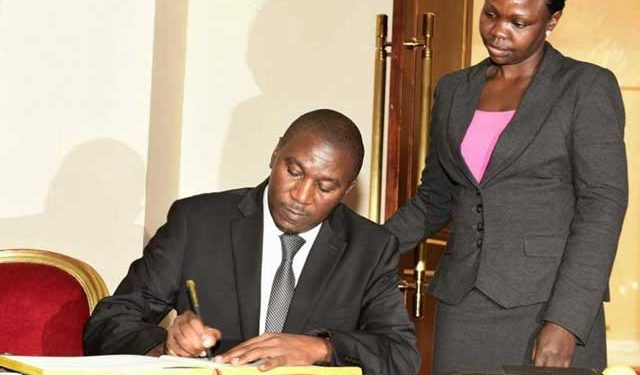The High Court Judge Justice Musa Ssekaana has ruled that the Central Banking ordinance banning any cryptocurrency transaction still stands and has dismissed the application against it.
While making his ruling on Monday, Justice Ssekaana said that the Bank of Uganda’s directive did not infringe on anybody’s property rights in any way because it was merely a regulatory directive to avoid legalizing the undefined system as a payment instrument in Uganda.
It should be recalled that last year on 29th April, Bank of Uganda issued a circular barring all entities licensed under the National Payment Systems Act 2020 from facilitating cryptocurrency transactions.
“This is to advise that the Bank of Uganda has not licensed any institution to sell crypto-currencies or to facilitate the trade in crypto-currencies. This is in line with the official Government position…this is to warn all licensed entities under the National Payment Systems…to desist from facilitating cryptocurrency transactions…,” reads part of the circular.
However, Silver Kayondo (Applicant) who is an advocate of the High Court and also a peer-to-peer retail investor in crypto and other digital assets including cryptocurrencies, stable coins, and non-fungible tokens (NFTs) which are all legitimately tradeable assets in the global financial markets and in Uganda found the circular inappropriate and a threat to the growth of cryptocurrency trading in Uganda.
He, therefore, went to the High Court under Sections 33 and 36 of the Judicature Act Cap 13 and rules 3(1)(a), 6(1) and (2) and 7 of the Judicature judicial review Rules of 2009 for judicial review seeking the court to declare that;
Crypto assets and Cryptocurrencies are legitimate digital assets tradable in the digital economy and can be liquidated/cashed out via Mobile Money and other payment systems in settlement for Uganda Shillings (UGX) which is the legally recognized legal tender of the Republic of Uganda at the prevailing free-floating exchange rates established by the global and national market forces of demand and supply.
He also wanted the Court to quash the circular that was issued by the Bank of Uganda and also wanted the court to prohibit the Bank of Uganda from enforcing and implementing circular reference number NPSD. 306 dated 29th April 2022.
However, the application has been dismissed by Justice Ssekaana saying that the respondent (Bank of Uganda) did not ban cryptocurrency but rather directed licensees under the National Payment System Act to desist from liquidating cryptocurrency.
The court also ruled that although the applicant argued that the respondent did not find it appropriate to consult an undefined group of stakeholders who actually thrive on cryptocurrency, by not consulting with the applicant a trader in crypto assets, the respondent did not act procedurally improperly but rather did not find it appropriate to consult them.
“The applicant cannot make a claim for legitimate expectation merely because the public statement did not outlaw the same. The statement did not promise to the applicant or other stakeholders that cryptocurrencies would be allowed in Uganda or would never be regulated. Legitimate expectation relates to a promise in relation to an existing situation which will continue, or to a future benefit, advantage or course of action which the authority will follow,” he said.
The judge also explained to the Applicant that the Ministry of Finance had also warned people about Cryptocurrencies however it merely stated that the government of Uganda did not recognize cryptocurrency as legal tender in Uganda nor had it licensed any entity or person to sell cryptocurrencies or to facilitate the trade of cryptocurrencies in Uganda.
He said that the circular was clear and unequivocal on the position of cryptocurrencies in Uganda and the context cannot be distorted to infer any benefit or promise of legality.
“It would be wrong and illegal for the applicant to try imposing the unrecognized cryptocurrency or crypto assets system into the regulated framework of the payment system under the National Payment System. The application fails on all the grounds raised and is dismissed. Each party shall bear its own costs. I order,” he ruled.
Do you have a story in your community or an opinion to share with us: Email us at editorial@watchdoguganda.com












